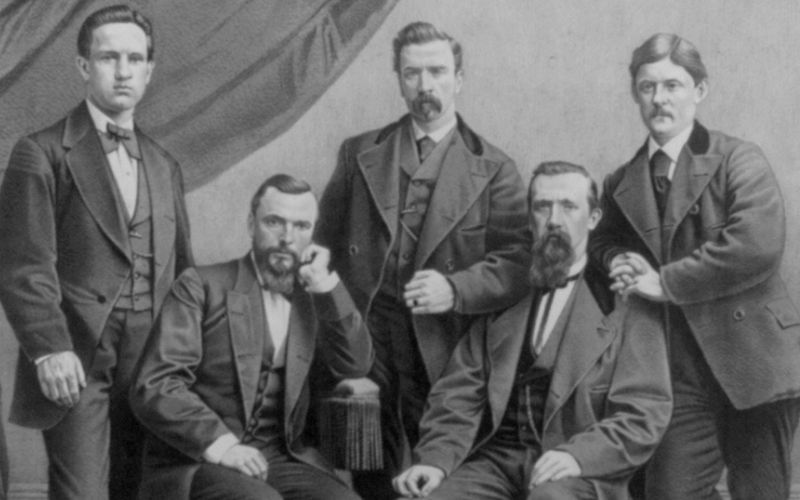Nothing makes me simultaneously happier and more devastated, as a writer, than when people feel strongly enough about my columns and articles to post harshly worded comments about them. To all detractors and vitriol spewers, I say, thanks for reading and for expressing your opinions. This is, after all, an opinion column, and I may very well be wrong sometimes.
That said, I try not to respond directly to comments, learning the hard way that it’s useless, and also believing my columns that stand for themselves. But there is one interesting point raised in the comments on my previous column.
User GeorgeDillon writes: "Why are you such a hyprocrite? You just want a romantic Church wedding instead of some dingy registry office affair. But you're not a Catholic, so buzz off."
I’d like to address that, because I find it ironically comical.
The idea that anyone would jump through the requisite hoops to have a Catholic wedding out of some misplaced sense of romanticism and fluffy dreams of the big church wedding, scrubbed of any serious religious elements, is laughable.
The wedding industrial complex (a term I did not coin but is nonetheless priceless and accurate) is heavily invested in convincing brides-and-grooms-to-be that the wedding should be all about them and their personality “as a couple,” whatever that means. Choose a signature cocktail that combines the flower he gave you on your first date with the hard liquor you drank the first time you slept together! Write your own vows: “I promise to always change the litter box – before you ask me!” Hire the mariachi band that serenaded you when you proposed at the Mexican cantina in your neighborhood. Personalize it.
Once a future-bride has absorbed this message through the pages of Martha Stewart Weddings, once she is convinced that her wedding will be at once classic and wholly original (even though she will still wear a white dress, say some vows, have some toasts, eat, drink and dance, just like everyone else before and after her will). Then, if she’s Catholic, she goes to her local priest to plan the ceremony.
I imagine the conversation to go something like this:
Bride: “I want to get married in this fabulous orange grove and serve mimosas during the processional.”
Priest. “Um, no.”
Bride: “I’d like to walk down the aisle to Celine Dion’s ‘Because You Loved Me,’ of course.”
Priest: “No.”
Bride: “I’d also like to incorporate a Unity Candle ceremony into the service.”
Priest: “What’s a Unity Candle? No.”
Bride: “Then I’d like to have my brother recite a poem about everlasting fidelity he composed just for us.”
Priest. “Sorry, no.”
Bride: “And instead of the traditional vows, I want to say something like, ‘I knew you were the one for me the first time we listened to that Dashboard Confessional song together in the car during the rainstorm.’”
Priest: “Definitely no.”
If you’re lucky, you’ll get an especially sensitive priest who will gently explain that in a Catholic wedding, the emphasis is actually not, shockingly, on you and your groom. It’s on God. You can’t have your sister-in-law sing “Wind Beneath My Wings.” Catholic weddings, like Catholic baptisms, funerals, confirmations, and ordinations, are not about the people who are uniting/joining/dying/committing – they are about honoring God.
In addition to the immutable elements of the ceremony itself, some other restrictions at some parishes include the mandatory donation of flower arrangements to the church (meaning you can’t transport the altar flowers to the reception, which many people do to save money), the mandatory hiring of the church organist (meaning no harpist for you), and sometimes a dress code (meaning ix-nay on the sexy backless gown).
In short, the bride who tries to arrange her hypocritically romantic church wedding at a Catholic church is in for a rude awakening. But this is not necessarily a bad thing, and actually one of the major reasons I am committed to having our wedding in the Church. (That, and the fact that I was raised Catholic, baptized and confirmed Catholic, have always gone to Mass on a regular basis and continue to believe in the faith. Just because I have had a lapse in attendance and I use the brain God gave me to question things doesn’t make me a hypocrite for wanting a wedding in my own Church. Just saying. Had to get that in there.)
Brides these days are conditioned to focus all of their energy on planning the wedding, giving little thought to what makes a successful and happy marriage. (Hint: it has nothing to do with cutesy vows.) The Church says, Hold on. Take this weird compatibility test. Attend some classes. Discuss how you would approach the complicated issues bound to arise in your shared life – less ‘What color ink on the invitations?’ and more ‘How would we cope if we found out we couldn’t have biological children?’
The Church requires couples to take Pre-Cana classes because it views the sacrament of marriage very seriously, and so should those entering into it. I’m okay with the fact that our ceremony will be void of frills and unique elements. I actually look forward to reciting the same vows that my parents and my fiancé’s parents each recited at their own weddings. And I’m grateful that the focus will be on us, yes, but also on God as well. Making a promise, forming a covenant with another human being is powerful, for sure, but making that promise to God is even more so.
This quotation from the Diocese of Brooklyn’s Pre-Cana website explains it perfectly:
“When you get married in the Catholic Church you enter into a covenant with one another through God. A covenant is different from a contract. In a contract, each party knows exactly what is expected and each party spells out specific obligations. But a covenant is a solemn promise of continued love, friendship and loyalty no matter what is involved. In a contract, you focus on the specific conditions, whereas in a covenant, you focus on the person unconditionally.”A Catholic wedding is about more than that one day, and it’s also about placing a marriage in a larger context. If you don’t know how to love your spouse one day, you think about how God loves us – unconditionally, with forgiveness and infinite patience and kindness – and then you try to emulate that. You’ll probably fail a lot of times, but it’s something to which you can aspire. That’s more meaningful – and romantic, actually – than releasing a hundred doves into the rectory during the recessional.




Comments